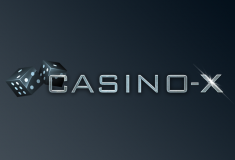Popularity of EPS in Online Casinos
Electronic payment systems have long been riding a wave of popularity among online gamblers. EPS offers quick and seamless transactions, often with minimal fees, which appeals to players around the world. Among the countries where such systems are most common are Germany, France, Spain, and even some CIS countries. The most popular currencies for these transactions are euros, dollars, and roubles, allowing players to top up on favourable terms.
Unlike bank transfers, which can take several days, EPS provides nearly instant deposits. Additionally, these systems are well-protected, giving players peace of mind about the security of their funds. Personally, I find the ability to make quick deposits a huge advantage, especially when there’s a “hot” slot ready to play, but the account is empty.
Pros and Cons of EPS
Like any system, EPS has its own advantages and disadvantages. Here’s a quick overview:
Advantages:
- Speed – transactions are usually processed within minutes;
- Convenience – many casinos support EPS, meaning access to games is always open;
- Minimal fees – fees are often either non-existent or minimal.
Disadvantages:
- Not all casinos support EPS – it’s worth checking availability before signing up;
- Transaction limits – depending on the system, there may be caps on the maximum amount;
- Verification may be required – extra document verification may sometimes take time.
As they say, there’s always a little snag in paradise.
How to Deposit via EPS
Depositing via EPS is as simple as pie, and I guarantee it. Here’s how to do it:
- Sign up or log in to your casino account.
- Open the “Cashier” or “Deposit” tab.
- Select EPS from the list of available payment methods.
- Enter the amount and confirm the transaction.
- Verify the payment through your EPS app, and the money will appear in your account.
I’ve personally used EPS several times, and each time it took just a couple of minutes. Even when you're itching to start a game, it doesn’t make you fret.
Can You Withdraw Winnings via EPS?
In fact, EPS is suitable for withdrawals too, though it’s worth checking the rules of your specific casino, as not all offer this option. Withdrawing is as easy as depositing, but be prepared for slight delays – casinos sometimes take a bit longer to process such requests.
If I had a pound for every minute spent waiting for a withdrawal, I’d be a millionaire by now.
Security and Anonymity of Payments
EPS is known for its high level of protection and anonymity. Many systems use two-factor authentication and strong encryption to secure transactions. By the way, tax oversight usually doesn’t touch such transactions, so you won’t have any extra eyes on your business.
As they say, “what happens in the casino stays in the casino,” and with EPS, this is particularly true.
EPS Fees
Typically, EPS charges a nominal fee for transfers, which varies depending on the amount and type of transaction. For example, a small percentage of the amount may be charged for each deposit or withdrawal – usually between 0.5% and 1%. In my view, this is quite reasonable, especially compared to other payment methods where fees can eat up a significant chunk of winnings.
EPS Limits and Restrictions
Many EPS providers set limits on the maximum deposit or withdrawal amount. For example, the daily limit may be from £1,000 to £5,000, or sometimes higher. On the one hand, this helps to control spending; on the other, it can be inconvenient for high rollers.
But as they say, “those who fly too high will sooner come down.”
Transaction Speed
EPS transactions are virtually instantaneous. From my experience, funds hit the account immediately after payment confirmation, allowing you to start playing without delay. And if there are delays, they are usually due to the casino itself.
There’s no need to sit and wait for a “miracle” when the funds are about to arrive – EPS is used to surprising with lightning-fast speed.
Similar Payment Systems
Among other popular payment systems are Skrill, Neteller, and Trustly. They also offer fast transactions, ease of use, and high security, which appeals to players worldwide. Skrill and Neteller have become especially popular in Europe, while Trustly has firmly established its niche in Scandinavia.
If I’m honest, I even feel a little more partial to Skrill – maybe it’s just the interface.
Comparing EPS with an Alternative
EPS favourably stands out against bank transfers in terms of speed and convenience. Unlike EPS, bank transfers often take up to 3-5 working days to process. Moreover, EPS is more anonymous and better protects data than traditional bank transfers, which always require identity verification and, in some countries, tax reporting.
Conclusion
The Star Gambling team has thoroughly analysed the capabilities of EPS and recommends it as a convenient and reliable deposit method for those who value speed and security. If you want to try something quick and secure, EPS is an excellent choice.
FAQ
How do I register with EPS?
To register, go to the EPS website and complete the verification process.
How do I top up my casino account using EPS?
To do so, select EPS in the “Deposit” section, enter the amount, and confirm the transaction.
Is it safe to use EPS?
Yes, EPS provides a high level of protection with two-factor authentication.
Are there fees for deposits?
A small fee may apply, usually between 0.5% and 1%.
Is EPS suitable for large amounts?
Yes, but keep in mind the limits set by the system and the casino.
Can I withdraw winnings?
Yes, many casinos support withdrawals to EPS.
What currencies are available?
Usually, it’s euros, dollars, and roubles.
Can I use EPS abroad?
Certainly, EPS works in most European countries.
How fast are EPS transactions?
Transactions are usually instant, but if delays occur, they are typically due to the casino’s processing.



















